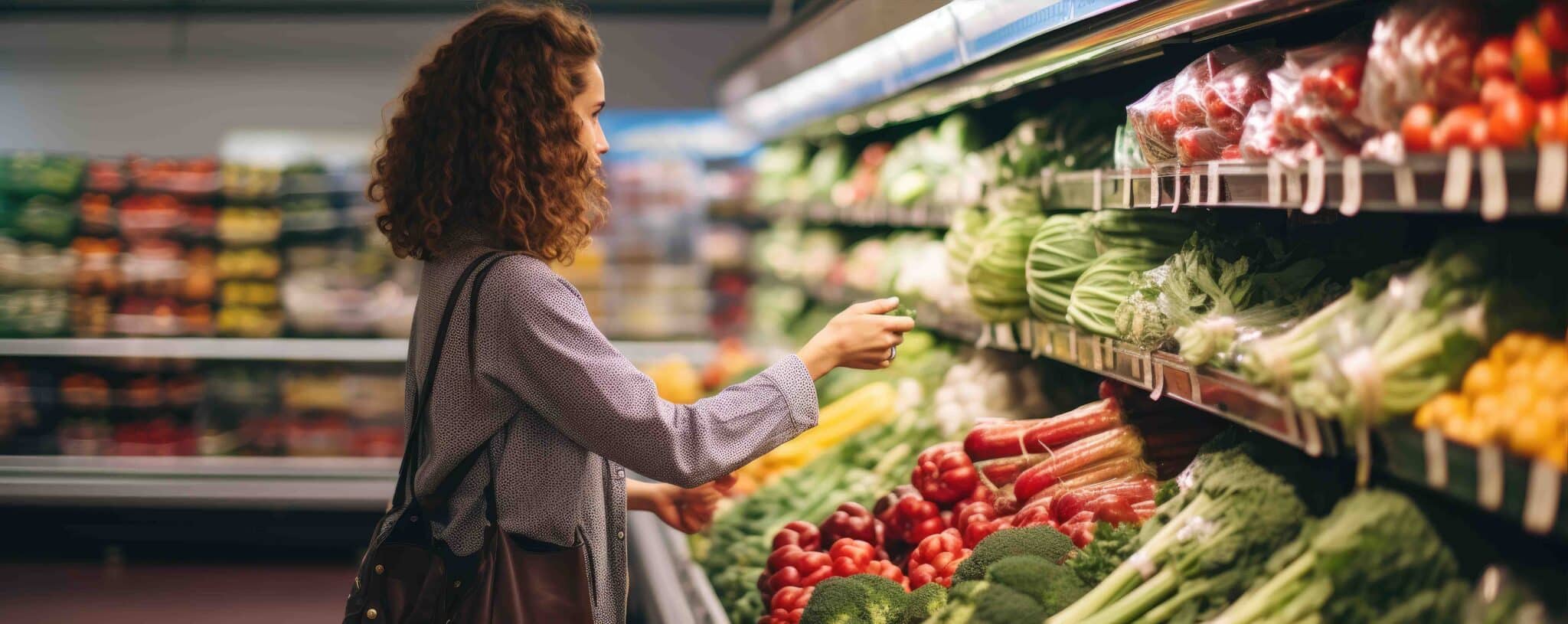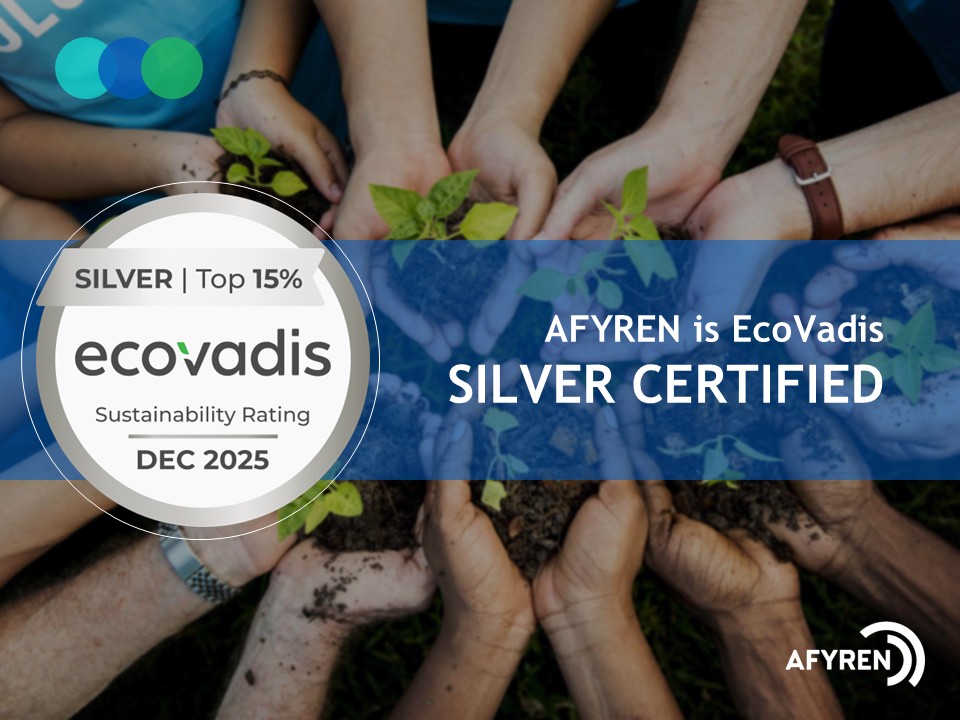Retour page d’accueil • Naturality in the ingredients
Naturality in the ingredients

Today, more than half of all companies say they are committed to sustainable development, but it is becoming increasingly clear that reconciling environmental and economic performance involves many difficult choices. Only 21% of companies have a clear roadmap for implementing their sustainability strategies. At AFYREN, we believe that sharing knowledge and experience can contribute to a more sustainable future. In our blog posts, we seek to share the expertise we have developed on our own journey toward a sustainable, circular business model.
In this overall objective, agriculture and the food industry have important roles, not only because they have to fulfill one of our basic needs, but also because their environmental footprints are meaningful. Globally, we use around 70% of freshwater withdrawal for agriculture and food is responsible for about 26% of greenhouse gas emissions.
Now that we understand the impact on the planet, the objective is to maintain quantity, quality, and diversity while respecting the environment. This is the second article in a series that takes a deep dive into the complex problems we need to overcome in these sectors by humbly presenting what we are trying to achieve at AFYREN. You can read the first article on food waste: Feeding the world with a circular model: no waste, more again
How the food industry can adapt to consumer tastes, naturally ?
The popularity of apps like Yuka, Healthy Living, or INCI Beauty, which provide healthiness scores and information on the ingredients in food and cosmetics, underscores how much today’s consumers are concerned about what’s in their food.
The food industry’s reputation is constantly under fire, from safety concerns over additives and the presence of pesticide residue, to old fashioned tainted meat scandals (see horsegate). It is no wonder that consumers are skeptical about the quality of the products the food industry has on offer.
Consumers are focusing both on the quality of the food and the information provided on packaging. […] But it is not just about ingredients. People are demanding increased transparency along the entire food production chain. They want to know where the food comes from, how it was produced, what its nutritional value is, and even its environmental footprint.
Buzz words aside, consumers seek transparency
Now, with information piling up on food packaging and on digital outlets like Yuka, it can sometimes be hard to separate the wheat from the chaff.
Behavioral economics suggests that, in a context where consumers are overloaded with information and choice, they tend to rely on heuristics, or mental shortcuts, that give high importance to less complex information. This could explain the trend toward so-called “clean” labels — for food that does not contain artificial ingredients or additives, or simply has a short list of components. “Natural” products are also perceived as better or safer, closer to the raw material.
[…]
So how can we help restore consumer trust in food products ? The food industry is one of AFYREN’s main markets, and we are winning business on a simple promise: the molecules we sell into the food industry are created through a natural fermentation process, using regional agricultural co-products as feedstock instead of petroleum derivatives. […]
AFYREN technology is based on natural fermentation
Our technology is based on one of the most ancient food-preservation processes : fermentation. By mimicking metabolic chains found in natural ecosystems, AFYREN produces a set of molecules using raw substrates without pretreatments, such as beet pulp. More precisely, a mix of microorganisms is used rather than a single type, to transform all the material available with a rich and varied natural enzymatic load. The microorganisms AFYREN uses are not genetically modified as in many precision fermentation processes.
This innovation enables us to provide food companies with high quality, biobased, organic acids that come from a lean and natural process that meets food safety requirements such as those in the FSSC 22000 Standard. This attention to consumer expectations has also led us to create ingredients that are suitable for products destined for halal and kosher certifications or for the vegan market.
[…]
Our other biobased, natural acids create brand new alternatives. For example, Calcium Propionate (CalPro), widely used as a preservative in bakery products, had not been available in a biobased version before. A “clean label” option using fermented wheat flour was available, but it required six times the amount of product to reach the same level of food preservation as CalPro — and fermented wheat flour is much more expensive. Now, AFYREN’s natural VITAFYREN™ Propionic acid can be used to make Calcium Propionate and fill this gap in the market.
Can tasty, healthy food — made naturally — restore trust?
Plant-based diets, sustainable food practices and increasing demand for healthier food are among the challenges the agri-food industry faces. Meanwhile, flavor will always be a major factor. Flavor houses will need to be creative to bring solutions that please the palate while meeting a litany of consumer needs : sustainable, local, clean labeled, natural, low salt/sugar/fat. One good example is trying to mimic the taste of meat, cheese or dairy products while qualifying as vegan.
AFYREN helps addresses this challenge with FLAVYREN™, a range of natural flavoring substances produced in Europe through our innovative fermentation process. With it, Flavor houses can develop an abundant selection of compositions to meet the demands of today’s consumers for food that is enjoyable and has a positive impact on our health and environment.
As consumers become more discerning, the food industry can innovate by using more natural processes, such as fermentation and the use of biobased raw materials, while at the same time increasing transparency. […]
Last news

AFYREN NEOXY: first significant revenue and growing production in 2025
News post Press release
AFYREN confirms drawdown of €7 million in previously secured financing for its subsidiary AFYREN NEOXY
News post Press release
AFYREN awarded Silver Medal by EcoVadis for CSR performance, ranking in the top 8% worldwide
Press release
AFYREN and ESSE Skincare begin partnership to offer 100% natural cosmetic solutions with enhanced skincare performance.
Press release
AFYREN raises €23 million through share capital increase to finance optimization and expansion of unique biorefinery AFYREN NEOXY
Press release
Deforestation – Turning compliance with EUDR into an innovation driver
Publication

